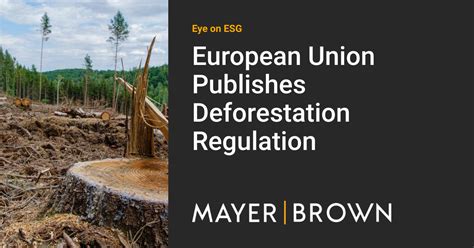The European Union recently faced a significant decision regarding its new anti-deforestation legislation. After much debate and negotiation, it was agreed upon to delay the implementation of the law by one year. However, despite this delay, the core content and purpose of the legislation remain unchanged.
Political Climate:
The decision to postpone the enforcement of the anti-deforestation rules comes as a disappointment to some and a relief to others within the political landscape of the EU. The center-right European People’s Party had been advocating for amendments that would potentially dilute the strength of the law, citing concerns about its impact on businesses. However, these proposed changes were ultimately set aside in favor of upholding the original intent of the Green Deal.
The Tripartite Agreement:
A pivotal agreement was reached among key players in shaping EU policies – the European Parliament, Council of the EU, and European Commission. This agreement solidified that the Commission’s initial proposal for a one-year delay would be honored, with an effective date now set for December 30, 2025.
Expert Insight:
According to environmental policy experts, while delays in implementing crucial environmental legislation can be frustrating, ensuring comprehensive measures are in place is vital for long-term sustainability. The intricate balance between economic interests and environmental conservation remains at the forefront of such decisions.
Amendments Rejected:
Notably, attempts by certain factions to introduce amendments that could potentially weaken due diligence requirements related to deforestation risk areas were met with strong opposition from both Commission officials and EU member states. These rejected changes included proposals for creating a special “no risk” category for commodities sourced from areas deemed low or zero risk for deforestation.
Insightful Analysis:
The discussions surrounding deforestation laws shed light on broader issues such as international trade regulations and global sustainability goals. Balancing economic growth with responsible sourcing practices poses complex challenges that policymakers must navigate adeptly.
Evolution of Proposals:
Throughout this legislative journey, there have been several instances where proposed revisions were either modified or abandoned entirely. From earlier considerations like a two-year postponement to recent debates over simplifying regulatory processes, each stage reflected a dynamic interplay between diverse interests and concerns.
Future Perspectives:
Looking ahead, stakeholders anticipate continued dialogue on how best to streamline regulations without compromising environmental standards when reviewing this law in 2028. The commitment to periodic reassessment underscores a commitment to adaptability and responsiveness in addressing evolving challenges.
In conclusion,
the path towards enacting robust anti-deforestation measures involves navigating intricate political landscapes while upholding core principles of sustainability and accountability. As these deliberations continue within EU corridors, they reflect not only regional priorities but also global responsibilities towards preserving our planet’s ecosystems.

